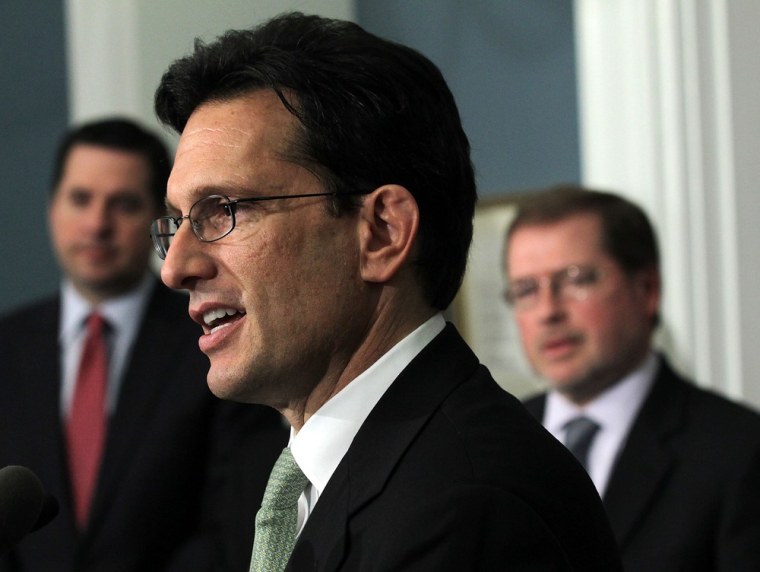A seemingly mundane vote on Wednesday intended to help Republicans soften their image on the health care issue laid bare some of the still-raw divisions between the GOP’s pragmatists and the party’s more obstinate ideologues.
House Republican leaders were forced to pull a vote on legislation designed as a prime opportunity to fuse conservative priorities with a proposal easily grasped by voters: improving coverage for Americans with pre-existing conditions. Conservative lawmakers fretted that the proposal would perpetuate an element of “Obamacare,” and once again balked at supporting Republican leaders. The situation illustrated, again, the party leaders’ difficulty in managing some of the GOP’s most unruly conservatives.

Majority Leader Eric Cantor, Va., the No. 2 Republican in the House, was the chief proponent of the now-shelved legislation, which would have reallocated money from the program’s prevention fund in order to beef up the insurance pool established for high-risk patients under “Obamacare.”
“We, in the House, remain committed to putting our conservative principles first to help people first,” Cantor said at a press conference with fellow Republican leaders.
Though President Barack Obama had threatened to veto the legislation, Republicans pursued it nonetheless to notch a positive, campaign-friendly vote for House lawmakers.
But Cantor’s office, which sets the schedule for the House floor, was forced to reverse course by Wednesday afternoon, and cancel a planned vote on the legislation when it became apparent that they would lack the necessary votes to advance the bill. (Most, if not all, Democrats intended to oppose the bill, meaning GOP leaders could afford to suffer few defections in their own ranks.
“We had good conversations with our members and made a lot of solid progress,” said Erica Elliot, a spokeswoman for House Whip Kevin McCarthy, R-Calif., who explained many House Republicans were set to leave town to attend the dedication of the George W. Bush presidential library on Thursday.
Doug Heye, a spokesman for Cantor, said: “We intend to bring the bill back up when Congress returns in May.”
The Virginia Republican’s proposal had enjoyed the high-profile support of conservative organizations like Americans for Tax Reform and Independent Women’s Voice, along with several other prominent conservative voices.
But the proposal angered conservatives, who complained that Cantor’s legislation would perpetuate an expensive part of the health reform law, and do nothing to halt the underlying legislation. The influential Club for Growth, which opposes the bill, said it would include lawmakers’ vote on its annual scorecard. Brent Bozell, a conservative figurehead who’s clashed often with the GOP establishment, dubbed the proposal “CantorCare.”
“It fixes part of Obamacare that the Democrats designed,” wrote Erick Erickson, editor of the influential conservative blog RedState. “It makes Obamacare less bad, more palatable, and more likely to stick around instead of collapsing under its own weight as Paul Ryan and others have kept saying it would.”
But the entire ordeal illustrated Republicans’ continued difficulties in finding the sweet spot between conservative consistency and the process of governing – a phenomenon within the GOP that extends well beyond Capitol Hill.
